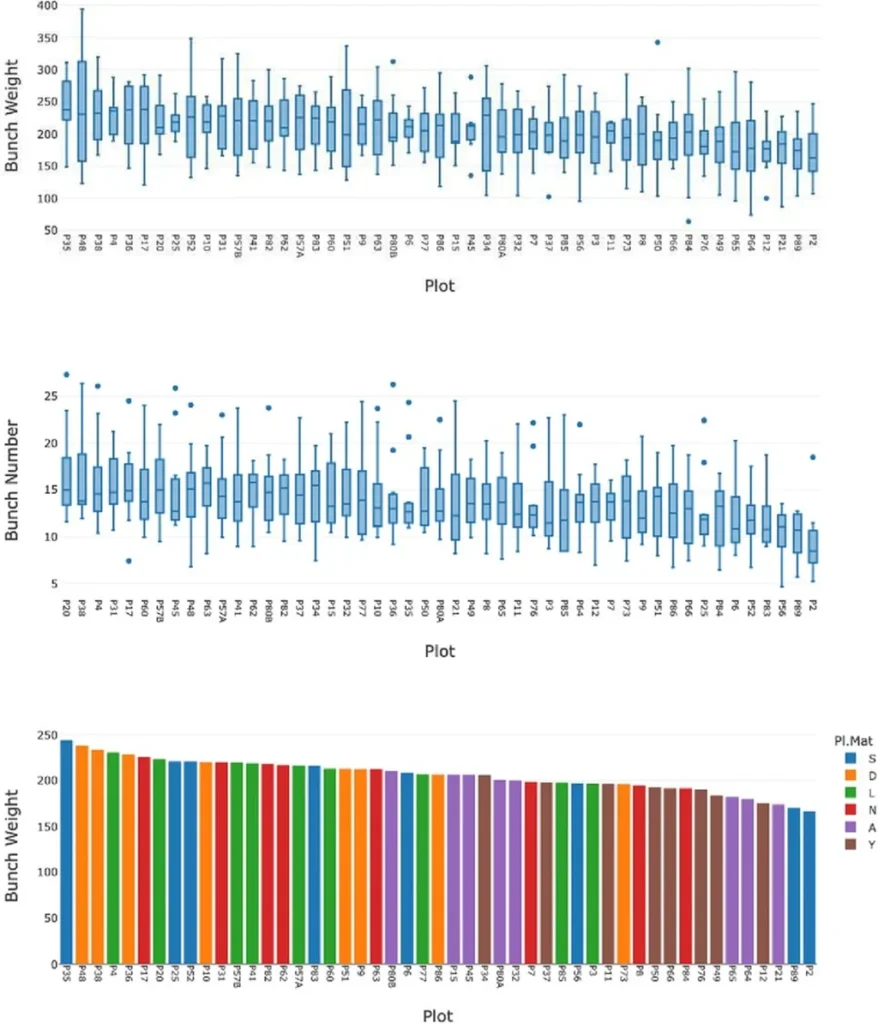In the heart of Sabah, Malaysia, a groundbreaking study led by Yuhao Ang from the Faculty of Sustainable Agriculture at Universiti Malaysia Sabah Sandakan Campus is revolutionizing the way we predict oil palm yields. By harnessing the power of deep learning and Python-based time-series models, Ang and his team are paving the way for more accurate and efficient forecasting in the agricultural sector, with significant implications for the energy industry.
The study, published in the journal “Applications of Modelling and Simulation” (translated as “应用建模与模拟”), focuses on the potential of Neural Prophet and Facebook Prophet models as alternatives to the conventional Autoregressive Integrated Moving Average (ARIMA) model for oil palm yield prediction. “The utilization of Python-based time-series models for predicting oil palm yield remains limited,” Ang explains. “Our research aims to explore and demonstrate the viability of these models in enhancing predictive accuracy and supporting informed decision-making in plantation management.”
The team utilized historical yield data from two oil palm estates, covering a total of 100 data points from 2015 to 2022 on a monthly basis. The results were impressive, with the Neural Prophet model outperforming the ARIMA model in terms of predictive accuracy. For Estate A, the Neural Prophet model achieved a Mean Absolute Error (MAE) of 0.16, a Root Mean Square Error (RMSE) of 0.18, and a Mean Absolute Percentage Error (MAPE) of 0.14. Similarly, in Estate B, the Neural Prophet model obtained an MAE of 0.17, an RMSE of 0.21, and a MAPE of 0.10.
The superior performance of the Neural Prophet model can be attributed to its ability to capture the complex patterns and nonlinear relationships inherent in the time-series data, thanks to the adoption of deep learning principles. “The fast implementation and robust forecasting capabilities of the Neural Prophet and Facebook Prophet models make them viable alternatives to the conventional ARIMA model for oil palm yield prediction,” Ang states.
The implications of this research extend beyond the agricultural sector, with significant commercial impacts for the energy industry. Oil palm is a crucial source of biodiesel, and accurate yield prediction is essential for effective management of inputs, ultimately leading to cost optimization and enhanced sustainability in oil palm cultivation. By adopting these advanced time-series predictive models, plantation management can make informed decisions concerning yield forecasting, ensuring a stable supply of raw materials for the energy sector.
As the world continues to shift towards renewable energy sources, the demand for biodiesel is expected to rise. The research conducted by Yuhao Ang and his team at Universiti Malaysia Sabah Sandakan Campus is not only timely but also crucial in addressing the challenges faced by the energy sector. By embracing the power of deep learning and Python-based time-series models, we can look forward to a more sustainable and efficient future in oil palm cultivation and biodiesel production.
This study opens up new avenues for future research and development in the field of agricultural yield prediction. As Ang puts it, “The time-series predictive models developed in this study can assist plantation management in making informed decisions, ultimately leading to cost optimization and enhanced sustainability in oil palm cultivation.” With the continuous advancement of machine learning and deep learning technologies, we can expect even more accurate and efficient predictive models to emerge, shaping the future of agriculture and the energy sector.

